BioQUEST Projects
BioQUEST has taken on a wide variety of projects over its 35+ year history.
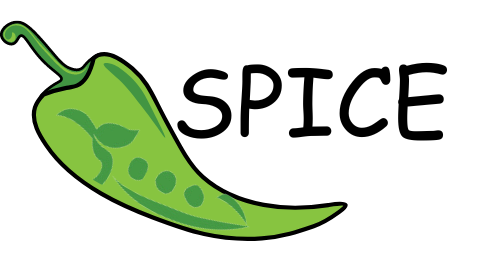
Supporting Proposal Incubation and Creation for Educators at Two Year Institutions (SPICE) is a National Science Foundation (NSF) supported project.
Started in 2024, the SPICE project will bring together two-year college faculty to form working groups to create proposals for the Innovation in Two Year Colleges, an NSF IUSE section.
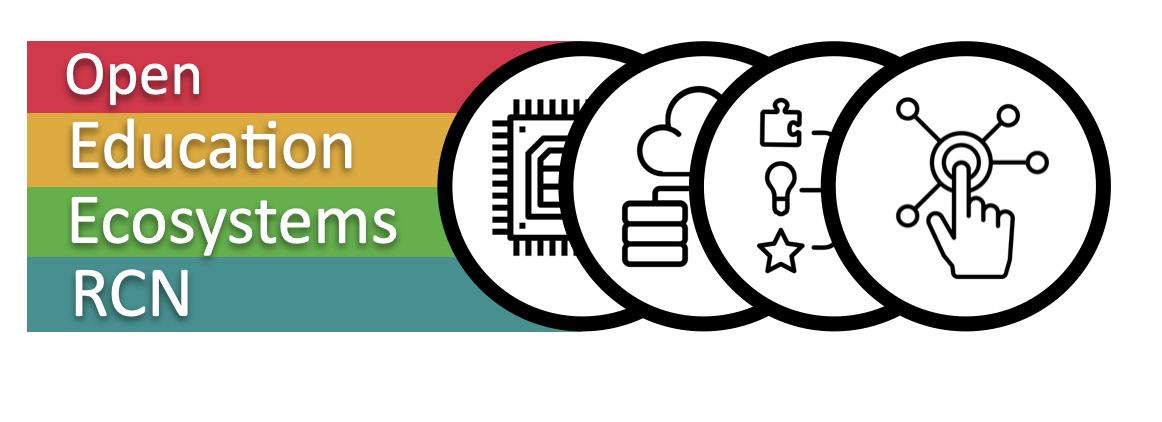
Building Open Education Ecosystems to Facilitate the Adoption and Adaptation of Computational and Data-Centric Tools Across Undergraduate Biology Education (OEE-UBE) is a National Science Foundation (NSF) supported project.
Started in 2024, the goal of OEE is to create ecosystems around important computational and data-centric educational issues. OEE also focuses on four cross-cutting themes, which will be integrated into each OEE. Each OEE will create materials that can be used in the classroom by faculty and to host professional development opportunities to use those materials.
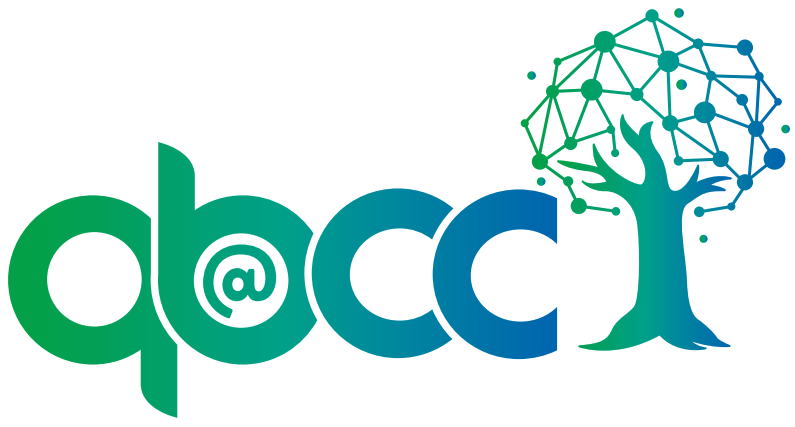
Quantitative Biology at Community Colleges (QB@CC) is a National Science Foundation (NSF) supported project.
Started in 2019, the goal of QB@CC is to drive the disciplinary expectation that all biology courses should significantly enhance student's quantitative skills. QB@CC provides educational materials and professional development for faculty. QB@CC generates Open Education Resources (OERs) that may be used by anyone, and professional development programming will be designed to address many of the challenges in teaching quantitative skills. Although this network focuses on community college faculty, most of the materials generated will be appropriate for lower level biology courses in four-year institutions.
BioQUEST partners with many groups to run projects in the education reform space. Visit Partner Projects and see all the fascinating work being done in conjunction with BioQUEST.

Quantitative Undergraduate Biology Education and Synthesis is now a wonderful social and cyber infrastructure available for groups to share materials and build community supported by BioQUEST.
Launched in 2014 as a virtual synthesis center supported by the NSF, QUBES has a primary goal of increasing the effectiveness of undergraduate biology education nationwide and a particular focus on including more quantitative concepts and skills. QUBES provides logistical, intellectual, and community support for innovative quantitative biology education projects.

CourseSource is an open-access journal of peer-reviewed teaching resources for undergraduate biology and physics.
CourseSource publish articles organized around courses in both biological and physics disciplines, and aligned with learning goals established by professional societies representing those disciplines. They have recently partnered with BioQUEST to keep their materials saved on the QUBES platform.
Additional Projects & Resources
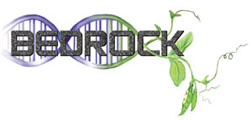
BEDROCK (Bioinformatics Education Dissemination: Reaching Out, Connecting, and Knitting-together) is aimed at integrating bioinformatics throughout the undergraduate biology curriculum
BEDROCK (Bioinformatics Education Dissemination: Reaching Out, Connecting, and Knitting-together) is an NSF-funded project aimed at integrating bioinformatics throughout the undergraduate biology curriculum, using an inquiry-based approach in which students explore and analyze actual data in a way that recreates the experience of conducting research.
The BIRDD Problem Space organizes data, tools, literature, and teaching resources to support student research.
Beagle Investigations Return with Darwinian Data (BIRDD) is a rich collection of primary scientific data and supporting materials about the Galapagos Islands and Darwin's finches. BIRDD is a problem space providing a collection of introductory materials and data resources designed to support students as they reason about the evolutionary relationships between the species.
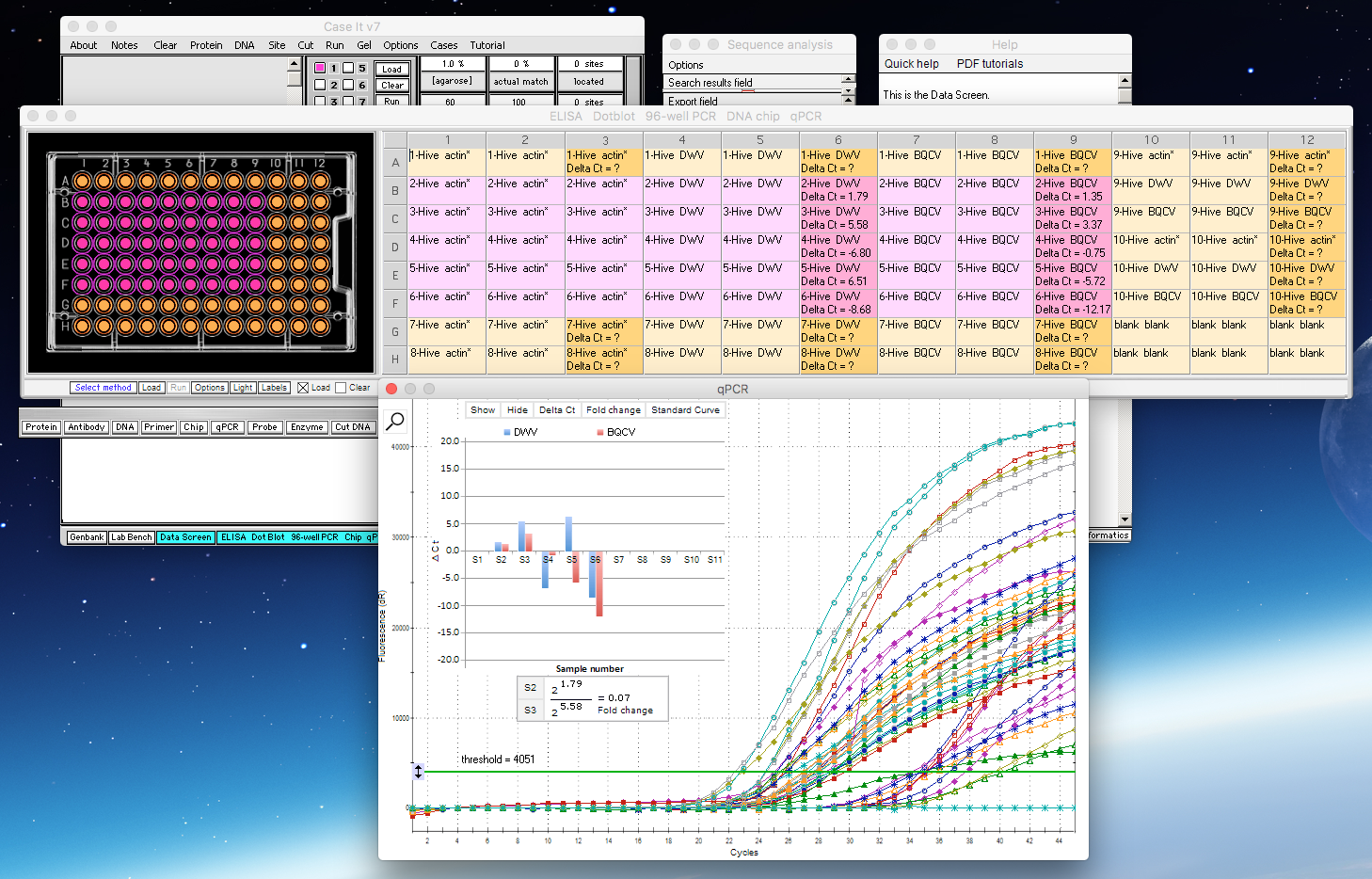
Case It is a project to develop molecular biology laboratory simulations for case-based learning in biology.
Case It is a project providing a framework for collaborative case-based learning via free, open-ended molecular biology simulations and cases based primarily on genetic and infectious disease. Supported by the University of Wisconsin-River Falls and NSF, Case It won a Science Prize from AAAS for its effectiveness as a tool for inquiry-based instruction.
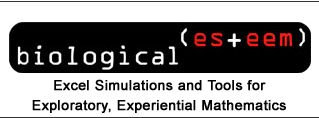
Biological ESTEEM (Excel Simulations and Tools for Exploratory, Experiential Mathematics) is a collection of resources for teaching quantitative skills in biology.
Biological ESTEEM (Excel Simulations and Tools for Exploratory, Experiential Mathematics) is a collection of resources for teaching quantitative skills in biology. ESTEEM operates under The Three E's: Excel, Exploratory, and Experiential.

Investigative Case-Based Learning (ICBL) is a variant of Problem Based Learning that encourages students to develop questions that can be explored further by reasonable investigative approaches.
Investigative Case-Based Learning (ICBL) is a variant of Problem Based Learning that encourages students to develop questions that can be explored further by reasonable investigative approaches. Students then gather data and information for testing their hypotheses. They produce materials which can be used to persuade others of their findings.
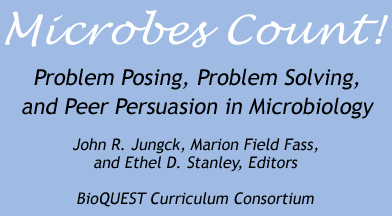
Microbes Count! is a collection of multimedia resources, simulations, and tools that offer an interactive, open-ended environment for learning about microbiology.
Microbes Count! is a collection of multimedia resources, simulations, and tools that offer an interactive, open-ended environment for learning about microbiology. These resources are research-related, contemporary, and lend themselves to collaborative learning in classroom, laboratory, field, or computer workspaces.

Problems solving with Plants: Cases for the Classroom has 14 cases for learning plant biology in real-world contexts and helps for teaching with investigative cases.
myPlant IT provides resources for students and teachers to solve contemporary plant-related biology problems and explore career connections featuring technology and skills that support modern plant science, such as bioinformatics and biotechnology. The project is a collaboration between BioQUEST, the Botanical Society of America, and Texas A&M University
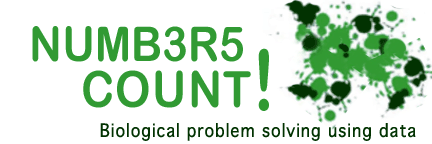
The Numbers Count project focused on biological problem solving and offers open educational resources.
Led by Claudia Neuhauser and initially supported by the Howard Hughes Medical Institute, Numbers Count offered faculty workshops and open resources.
Other Past Projects
- Achieving Scale for STEM Reform
- BEN (bio ed resources)
- BioQUEST Library (modules)
- Bridging to STEM Excellence
- BQ Summer Workshops
- C3 Cyberlearning Project
- CASE IT! (molecular bio)
- EOT-PACI Partnership
- NIE (Singapore Science Ed)
- NIMBioS 2010 (comp bio)
- Oakwood (curriculum modules)
- Opening the Pathway to Technician Careers, 2019
- PEER 2009 (UTK grad support)
- PEER 2010 (UTK grad support)
- PEER 2011 (UTK grad support)
- Planting Science (K-12 Research)
- Problem Spaces
- SCALE-IT (UTK faculty outreach)
- SCOPE

